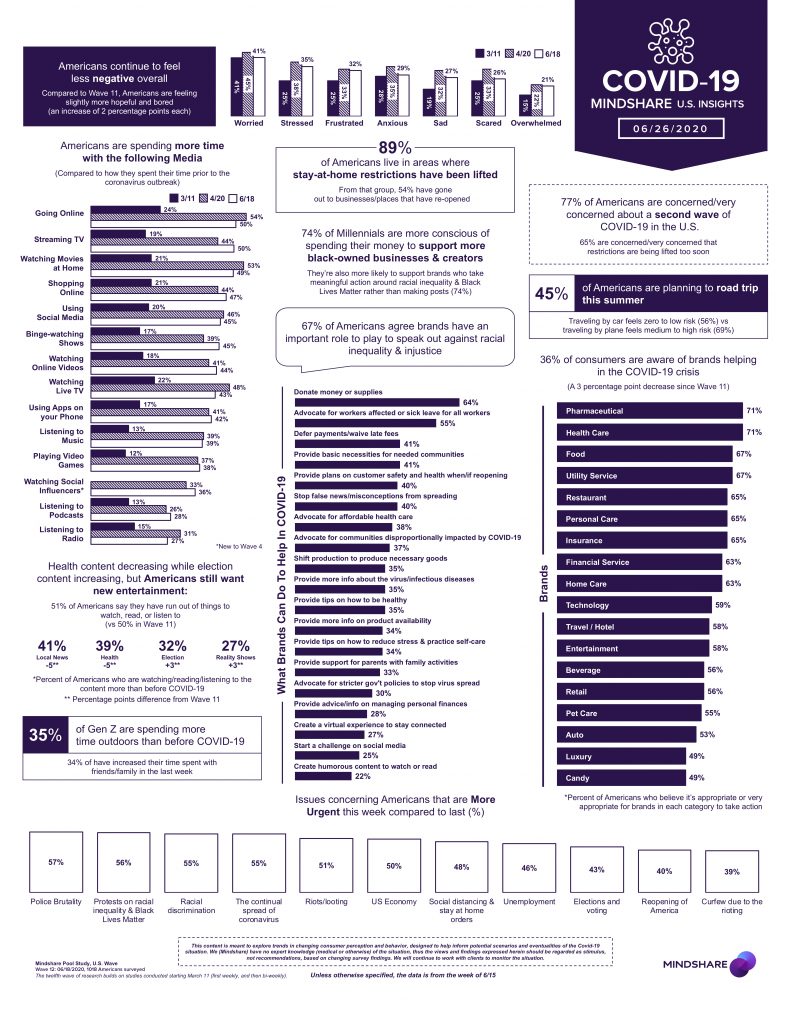29th June 2020
Wave 12: Negativity continues to drop
Wave 12 of our weekly POOL research, which examines how COVID-19 is affecting media consumption and consumer behaviors, took place W/C June 25, with over 1,000 participants.
Four key insights from the research
- While sentiment on how Americans feel about COVID-19 is nearing Wave 1 levels for negative emotions, overall Americans are still feeling stressed, frustrated, and sad. Concerns over a potential second wave are high and the continual spread of COVID remains an urgent issue.
- Support for the Black Lives Matter movement continues and a majority of Americans believe that we need to do more to end police brutality and racial inequality. The ongoing protests and systemic discrimination also continue to be urgent issues.
- Younger generations are more likely to support or purchase from brands who have taking action around BLM and racial inequality, while both Affluent and Black Americans are wary that brands supporting are being opportunistic and not genuine.
- Consumers are still conscious of their spending, and more Americans are starting to plan for the future as summer continues (e.g. investments, trips, delaying less trips). However, Americans are taking risk into account for their summer plans, choosing activities that can minimize risk as much as possible (e.g. traveling by car, spending time outdoors).
More takeaways and insights from Forbes, which takes a deeper dive into social justice and how brands can't just talk:
Excerpt: According to Alexis Fragale (Director of Consumer Insights), consumers expect brands to do more than pay lip service to social justice. They are demanding that brands take "meaningful action" such as to make commitments to foster changed in society and to provide resources to help educate others about the issues. Companies also can promote Black-owned businesses, improve their hiring practices and make changes in their industry.
Interestingly, the Mindshare survey also found that 61 percent of affluent Americans supported the idea that “I don’t think brands who speak out are genuine about the cause but are being opportunistic.” Many Black consumers shared that sentiment, according to Mindshare.
"Brand purpose requires sustained, long-term commitment," she writes. "While consumers support and expect brands to be active in this space, they're concerned that brands are being opportunistic rather than genuine and want meaningful action rather than just written posts or statements. If you look at the top areas where they can impact, two of them are very much related to the brand itself through its organization and its industry. There are some great examples of this, such as the 15 Percent Pledge (which asks companies to commit that 15% of their merchandise will come from Black-owned brands)."
More stats and data:
